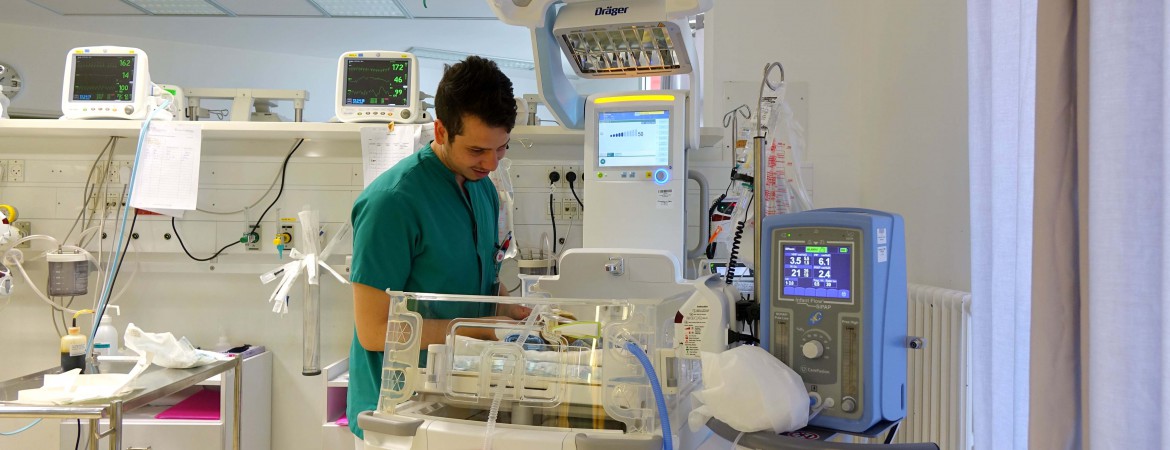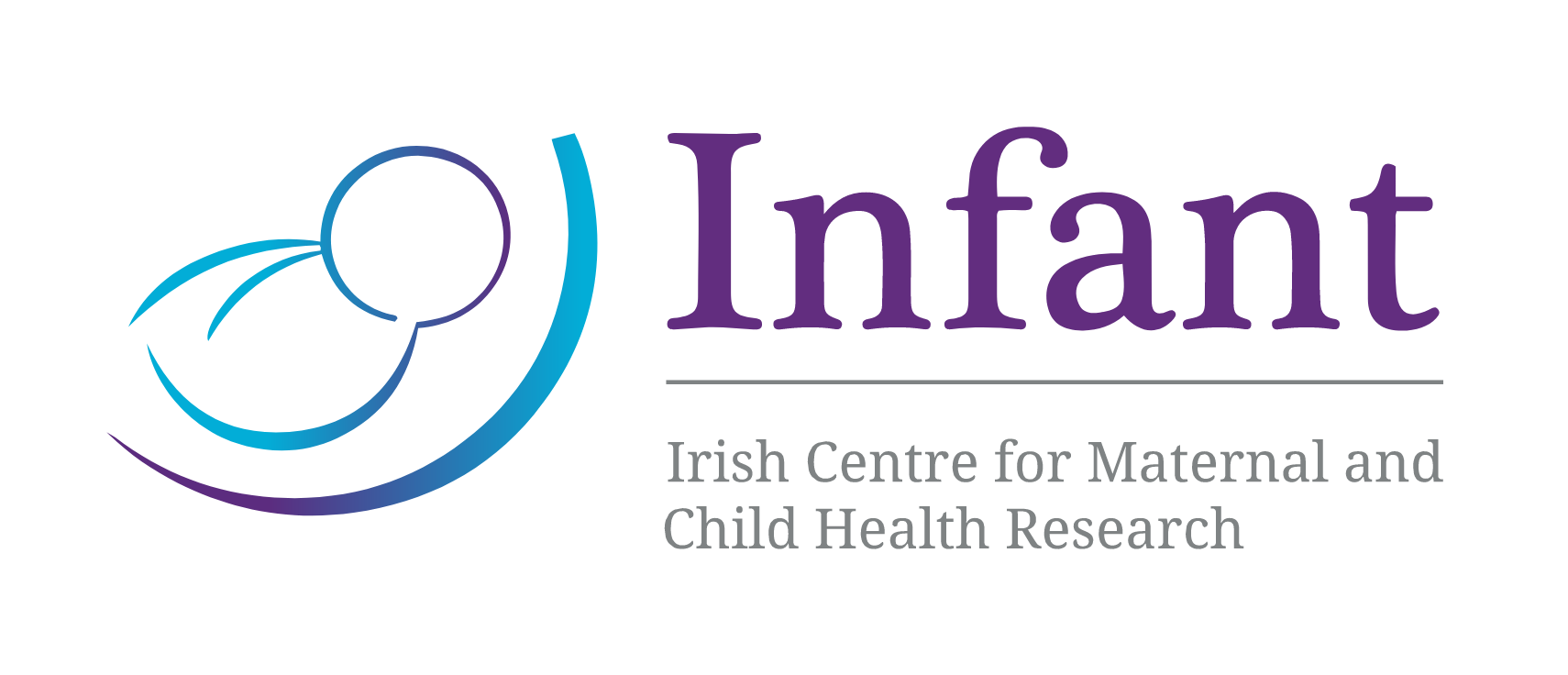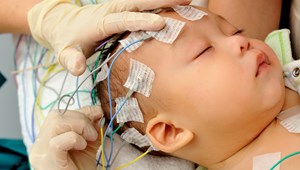Data, Algorithm and ICT Capacity and Resources
The INFANT Research Centre focuses on making pregnancy safer and improving health outcomes for mothers and babies on a global scale.

INFANT Data, Algorithm and ICT Capacity and Resources: Thematic Areas
- 2.1 Connected Health
- 2.2 Medical Devices
- 2.3 Neonatal Brain
- 2.4 Big data
- 2.5 Advanced physiological signal processing and classification
- 2.6 Predictive modelling for diagnostics
- 2.7 Decision support systems and analytics
2.1 Connected Health
INFANT operates in a number of areas of connected health: connecting connecting the mother to the hospital in the antenatal space; connecting the newborn in the neonatal intensive care unit with the clinician, wherever they may be. We are building a fully integrated platform for collecting blood pressure readings from expectant mothers at home, to provide real-time information to healthcare providers.
Additionally, INFANT, in conjunction with industry partners IBM, have developed a distributed, cloud based platform for streaming physiological signals in real-time from the NICU. The cloud servers provide always on, always up to date algorithms for monitoring the patients’ state of health. For example, automatic monitoring of EEG data to trigger real-time alarms when seizures occur.
Web-based services developed within INFANT provide clinicians with access to remote monitoring and automatically generated alerts, ensuring that newborns receive the best possible care, 24/7, even when expert clinicians are not on-call.
2.2 Medical Devices
One of the key driving factors of the INFANT centre is translational research: bringing academic and clinical research to active clinical use at the cot-side.
Our multidisciplinary team have experience in operating in the regulatory environment, developing software, documentation and protocols according to the ISO standards required for bringing medical devices to the clinical investigation/validation stage.
Examples of medical device development include:
- The ANSeR project: a patented Neonatal Seizure Detection Algorithm (NSDA) which has been fully developed and brought to real time clinical investigation within INFANT.

- A “Brain Stethoscope” concept for sound-based observation of neonatal brain health, which is currently under development.

2.3 Neonatal Brain
We conduct active research in automated monitoring and diagnosis of neonatal brain health in term, pre-term and fetal populations. Our developed methods include multimodal automated seizure detector for term and preterm babies, grading of background EEG, assessment of maturation index in preterm EEG, prediction of neurodevelopmental outcome.
2.4 Big Data
- We have a well-established infrastructure for capture, storage, curation, retrieval and processing of large volumes of physiological data. We have experience in all the processes needed for data creation, maintenance, and management, together with the capacity to add value to data. We serve as a hub for data storage for several multicentre clinical research projects.
- We have the largest existing database of neonatal physiological signals from vital sign monitors (EEG, ECG, CO2, O2, blood pressure – IVBP & NIBP, SpO2, NIRs) and EEG Monitoring. The data are accompanied with synchronised video recording. The collection consists of data from over 1000 newborns from the intensive care unit and over 100 healthy control neonates, encompassing several thousand hours of continuous multi-modal synchronised physiological data.
- The datasets follow a strict data security policy – in line with ICH-GCP and ISO14155 all recordings and accompanying clinical data are pseudo-anonymised, and training and validation sets have been independently annotated by internationally recognised expert neurophysiologists
2.5 Advanced physiological signal processing
- We have extensive experience in developing robust signal processing algorithms for detecting events of interest from neurological and cardio-respiratory signals, such as seizures, brain abnormalities, hypotensive events, heart rate variability, etc.
- Our unique expertise focuses on advanced algorithms of signal processing including for spatio-temporal, multi-channel, multi-modal, and time-frequency domains.
- The robustness of the developed signal processing algorithms is a major contributor to successful translation from algorithmic development to cot-side implementation and usage.

2.6 Predictive modelling and classification for diagnostics
- We have developed and applied advanced machine learning and pattern recognition techniques for data exploratory analysis which include deep learning, support vector machines, non-linear regression analysis, boosting, bagging, stacking, etc.
- Our researchers regularly occupy top places in international evaluation campaigns, e.g. Kaggle.
- Our contributions are reflected in publications in top tier technical journals (IJNS – IF 6.5, JNE – IF 3.3, IEEE Transactions)
2.7 Decision support systems and analytics
The core INFANT engineering and clinical competencies are brought together to create clinical decision support systems, converting raw physiological data into meaningful information for diagnosis and prognosis.
The strong collaboration between the clinical and engineering teams ensures that the clinicians are fully aware of the available engineering capabilities while the engineers can be assured that they are solving clinically relevant problems.
A real-time, distributed, stream computing platform has been developed to assist in getting real time decision support from proof of concept to the cot-side as rapidly as possible. Extensive research and development ensures the reliable real-time processing of multi-modal physiological signals from multiple patients simultaneously.










